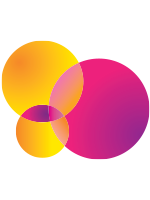Lea Lösch
Evidence in Action: Dynamic standardisation of experience-based knowledge and values in guidelines
Athena Institute, Faculty of Science, Vrije Universiteit Amsterdam, [email protected]
Supervisors: Prof. Aura Timen, Dr Teun Zuiderent-Jerak
Background
I obtained my Bachelor’s Degree in Sociology with a minor in Human Geography from the Goethe University Frankfurt and subsequently completed the Research Master Social Science (RMSS) at the University of Amsterdam. During my Masters, I got increasingly interested in medical sociology, particularly the subject of knowledge and values in relation to health and illness. I am a mixed method researcher and particularly intrigued by new opportunities provided by computational methods. In my thesis, awarded with the Institute for Advanced Study’s (IAS) thesis prize 2020, I investigated the public understandings of the placebo effect by combining qualitative and automated text analysis methods.
Summary PhD Project
My PhD research centres around innovating the inclusion of values and experience-based knowledge in vaccination guidelines by using automated text analysis methods. It is part of a joint project between the Athena Institute of the Vrije Universiteit Amsterdam and the RIVM (National Institute for Public Health and the Environment).
The inclusion of more diverse knowledge can lead to more suitable, helpful and robust guidelines. This holds the potential to improve health care practice as more practical and usable recommendations can be made that meet the needs and experiences of patients and professionals.
Alongside clinical expertise and the best available external clinical evidence, patient values and preferences have always been an integral part of the evidence-based medicine (EBM) model (Sackett et al. 1996). In practice, however, evidence from systematic reviews and randomised control trials (RCT) has been established over time as the dominant source of knowledge, as the “gold standard”. If knowledge about patient values and preferences is available, usually based on a limited number of interviews or observations, it is often difficult to integrate with quantitative evidence from (meta-reviews of) RCTs. The inclusion of patient experience and values thus remains a major challenge for guideline development, especially for vaccination guidelines.
We explore how AI-based methods may provide an innovative way to access citizens’, patient’s and health professionals’ practical experiences and value judgements and to translate them into robust knowledge that can be integrated into the development of vaccination guidelines through participatory methods. To this end, we mobilise methods especially from the field of natural language processing, to analyse existing textual records in which societal and professional knowledge and concerns can be found, such as social media platforms and databases from the RIVM.
Beyond improving guidelines for vaccination, our aim is to leverage these methods to broaden up the general process of guideline development and updating, for which AI-methods carry the potential of enhancing the inclusion of a wider set of knowledges and value considerations (Zuiderent-Jerak, Forland, and Macbeth 2012).



